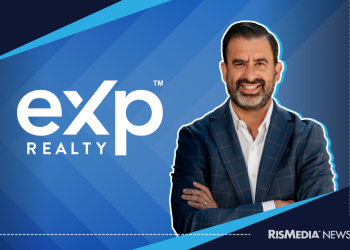You’re a top-producing real estate agent, expanding your client roster, surpassing your sales goals and living the good life. But why stop there? For these Engel & Völkers license partners—the company’s term for broker/owners—reaching the pinnacle as a sales associate led to making the decision to become owners and manage their own shop.
For many, this is the logical evolution in a successful real estate career, according to Tom Kunz and Adam Lerman, executive vice president and senior vice president, respectively, of Coaching & Accountability for Engel & Völkers, who possess a shared mission to support and drive brokerage profitability. The following license partners were successful advisors (Engel & Völkers-speak for “agents”) who felt they could translate their service excellence into ownership—not only to build a successful business, but to foster and grow top-tier talent.
Making the Decision
The decision to make the transition from agent to owner stems from a variety of reasons.
Erik Berg, for example, license partner with Engel & Völkers Aspen, wanted a change from the hectic pace of a top producer but still wanted to enjoy—and grow—the livelihood he had achieved. “I wanted to make a good living without feeling I always had to be in fifth gear and producing at the levels I felt I needed to,” he explains. “Being an owner provides me with residual income, allows me to help others build up their careers and maintain my role as a trusted advisor—something I’m still passionate about.”
Berg’s wife, Summer, left her eight-year law career to join her husband in the business. “I chose to give up a solid, steady income as an attorney because there was much more upside in growing a business,” she explains. “Every day provides new opportunities, the chance to build something special and enjoy the exciting parts of real estate transaction work that come with managing our office—it’s paid off in more ways than one.”
Valerie Post, co-owner with Keith Shirley of Engel & Völkers Boston, wanted to create something that would last well beyond their individual production as successful agents. “We weren’t in it just to maximize money for ourselves,” she explains. “We wanted something that would go on for years to come, not just depending on us.”
“The first step was looking each other in the eye and determining if this was really something we wanted to take on,” says Geoffrey Bray, co-owner of Engel & Völkers Minneapolis with Lindsay Bacigalupo. “Potentially, there’s a lot of risk in owning a brokerage, which you don’t have as a salesperson. So, the first step was digging deeper into our own personal ideology to ask ourselves, ‘Can we handle it, and should we do it?'”
Backed by the Right Brand
Making the jump into brokerage ownership for Bray and Bacigalupo had everything to do with the strength and support of the Engel & Völkers brand.
When Bray and Bacigalupo were running a team at RE/MAX, Engel & Völkers approached them. “We learned about what the company stood for—being the best of the best and providing exceptional, white-glove service,” explains Bray. “There really wasn’t one company that was well-known for that in the Minneapolis/St. Paul market. Engel & Völkers was our vehicle to raise the bar of what a real estate advisor should be.”
“This was an opportunity to bring a brokerage here that practiced real estate the way we do,” adds Bacigalupo.
Not only does Engel & Völkers bring the prestige of a high-quality, international brand to its license partners, but a wealth of support and resources, as well. “Tom and I work with brokers on their business strategies and recruiting to meet profitability goals,” explains Lerman. “We help them create a profit plan and hold them accountable with monthly calls to ensure they’re on track.”
For Summer Berg, one of the biggest problems in opening the brokerage was finding agents. “We made the decision, got the office space, did all the work to become brokers and then we had to find to join us. That’s where Engel & Völkers came in and helped us tremendously.”
According to Post, the resources from Engel & Völkers are critical to the firm’s success. “They have a fantastic coaching program that we participate in once a month,” she reports. “Knowing you have support from your headquarters is really helpful in recruiting advisors.”
The Keys to a Successful Transition
According to Lerman, the most important factor in making the transition from agent to owner is perfecting the ability to switch roles as needed. “Many of our most successful broker/owners still list and sell,” he explains. “They need to make sure they wear different hats for the job they do as an owner and as an advisor.”
Erik Berg agrees. “I need to make sure I’m guarding my time,” he explains. “It’s easy for me to get bogged down in the day-to-day, which is not really my role. My role is to take everyone on my team to the next level, and to consult and advise my clients. I also need to make sure I’m setting time aside to sell real estate.”
For Bacigalupo, making the transition to broker/owner is all about having the right team in place. “When you’re a working real estate agent and you add on another hat as an owner, it’s important to have a team that keeps us in check,” she explains. “Having a very collaborative culture is critical.”
According to Kunz, time management is vital as a broker. “There are three primary things you need to focus on: When is my selling time? When is my recruiting time? And when is my coaching time? It needs to be calendared. Most importantly, you have to calendar free time and family time.”
Avoiding Mistakes, Ensuring Profitability
The road to successful brokerage ownership is often lined with mistakes, many of which can impact the ultimate goal of profitability.
According to Bray, one of the easiest mistakes to make is not having a plan for growth. “Do you want to become a huge company, or do you want to be more of an intimate company? Knowing the rate of growth is very important. You can make a mistake if you get in over your head or you don’t grow fast enough,” he explains.
For Post, new broker/owners can get tripped up by not knowing when to relinquish the agent role. “The biggest mistake you can make is not letting go of the reins—not being willing to say, ‘You know what, I have to help grow the business,’ versus getting one more deal done.”
Safeguarding profitability is critical when taking on the ownership role. That’s why Summer Berg is committed to keeping a watchful eye on the numbers. “You have to really watch costs and take a hard look at ROI,” she explains.
Ultimately, says Kunz, a plan for ownership has to start with an equation for profitability. “Here’s the amount of profit I want to make, and here’s my total operating expenses, so here’s the total number of transactions I need based on average sales price to run my organization profitably, and here’s how many advisors I need to have to cover that number. That’s the basic fundamental to get started with.”
Which circles back to having a strong recruiting engine. “Recruiting is the lifeblood of any organization,” says Lerman, who emphasizes the importance of the three Rs: Recruit, Retain and Repeat. “Unfortunately, real estate agents leave, and you have to be prepared with a full pipeline of people to recruit.”
Most importantly, says Bacigalupo, take mistakes in stride. “Get past it quickly and learn from it. As we learn, it helps us make the right hires and growth decisions.”
For more information, please visit www.evusa.com.
Maria Patterson is RISMedia’s executive editor. Email her your real estate news ideas at maria@rismedia.com.
For the latest real estate news and trends, bookmark RISMedia.com.












